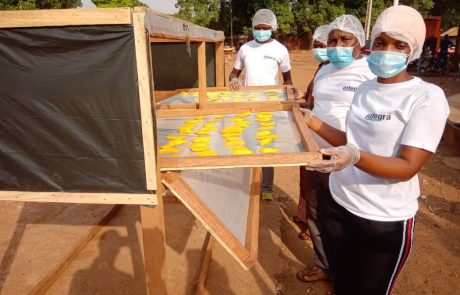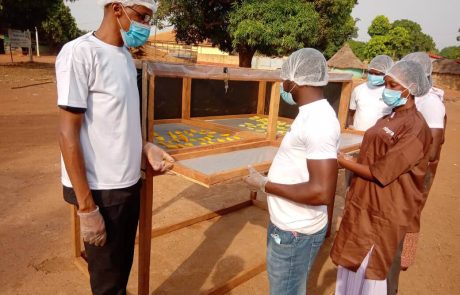INTEGRA-ITC provides adapted vocational training to youth aged 18-35 years old across the country with personalized coaching and training
Guinea presents high levels of underemployment, precarious working conditions, and low levels of productivity. As a result, a significant share of the nation’s youth either do not have a job or work in the informal sector, generating a low and unstable income. The lack of economic opportunities and the incapacity to answer the households’ basic needs often leads youth to migrate in search for a better future. Action is therefore needed to develop human capital and modernize key economic sectors. To do so, it is necessary to facilitate access to trainings designed to develop soft, technical and management skills that match both the labor market’s needs but also the individual’s aspirations.
In this context, INTEGRA-ITC provides adapted vocational training to youth aged 18-35 years old across the country with personalized coaching and training which lasts, on average, between six and nine months. The program aims to provide training in technical and management skills for different sectors and opportunity to gain work experience. In turn, this is expected to increase the employability of youth, access to decent employment, income, resilience and ultimately, improve livelihoods.
What methods will be employed?
A counterfactual impact evaluation (CIE) is being conducted to determine the program impact. The limited vacant places offered by the program allow C4ED to conduct a randomized control trial (RCT) in which eligible candidates that applied between April 2021 and February 2022 were randomly assigned to follow the parcours INTEGRA.
After baseline data was collected, the trainings are taking place and will be followed by three surveys respectively, 6, 12 and 16 months after the end of the training to capture impacts at different points in time. The quantitative evaluation strategy aims to build a sample of 2500 youth and includes key sub-groups (women and candidates willing to start a business) to allow investigating the program’s respective impacts on these groups.
Additionally, qualitative data is being collected to provide insights on whether the trainings address the beneficiaries’ needs but also on how and why the changes observed in the RCT materialized.




